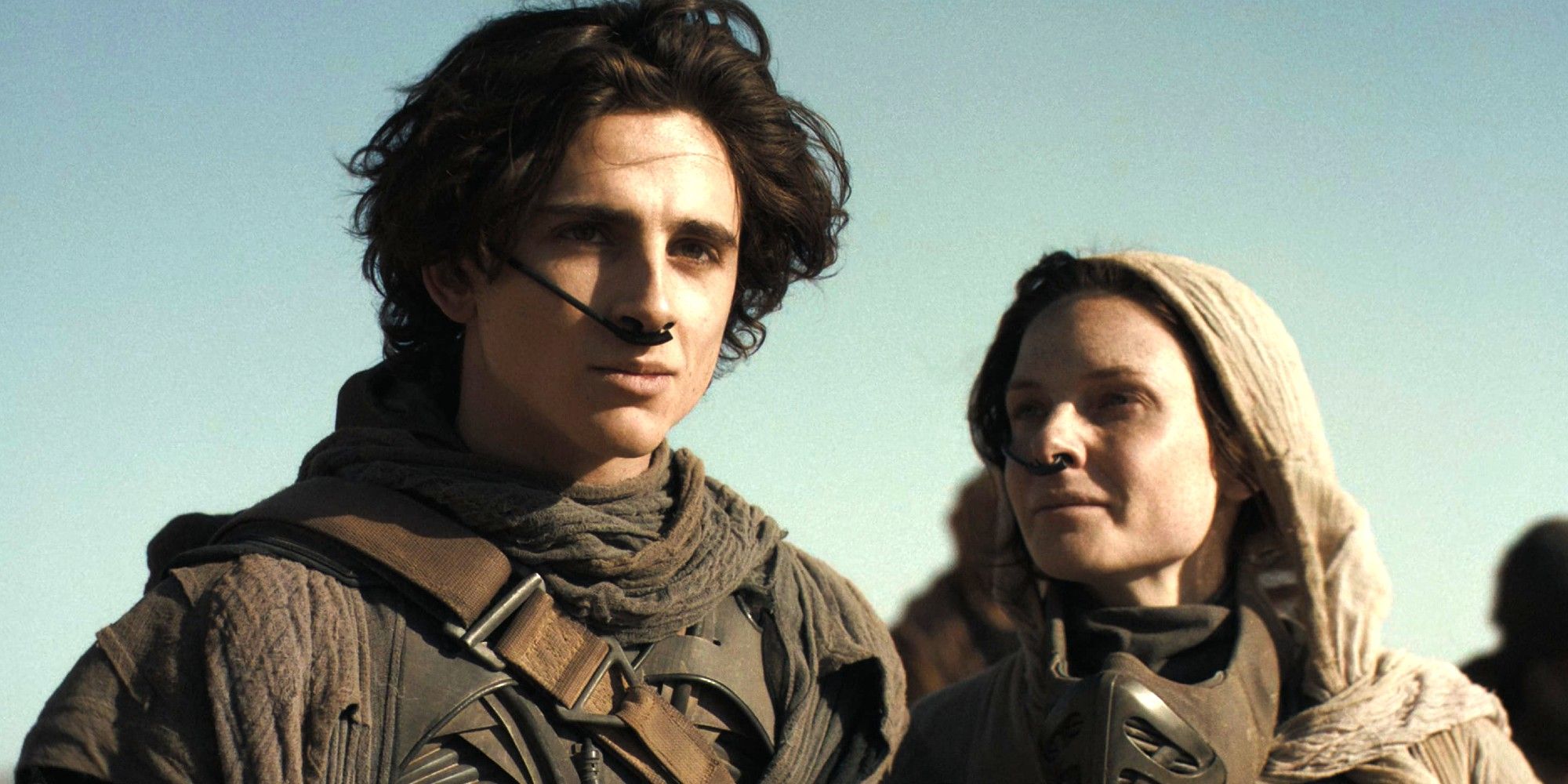“Dune Part 2: Villeneuve’s Grandeur and the Quest for Complexity Unveiled – Exploring the Sheer Scale and Craft”

Denis Villeneuve contains a way with fear. The opening of his Oscar-nominated 2010 dramatization, Incendies, overviews a room full of child officers having their heads shaved for fight, a Kubrickian homage with a queasy blend of empathy and exploitation, scored by an anxious Radiohead anthem. Such sinister showmanship is the French Canadian filmmaker’s stock-in-trade, and since crossing over from Quebec to Hollywood, he’s applied his slow-burn methodology to greater and greater ventures with generally impressive results.
The effectiveness of finished midrange thrillers like Prisoners and Sicario lies in their sense of consistently encroaching evil—the feeling that, no matter how terrible things are getting, there’s something more awful around the corner. Exchanging to sci-fi for Arrival and Blade Runner 2049 meant expanding the terrible vibes to apocalyptic extremes.
And in case there’s a common denominator between Villeneuve’s two Dune movies—the second of which arrives slightly afterward than expected due to the SAG-AFTRA strikes—it’s their blend of tactile majesty and ambient, free-floating threat. Martin Scorsese once compared the MCU movies to a topic park ride; at about three carefully distended hours, Dune 2 feels more like a funeral parade. Inertia creeps, moving up gradually.


The morbidity is heated into the material. Frank Herbert’s source books were styled as allegories of sky-is-falling Cold War geopolitics, with anti-imperialist evaluates and scarcely sublimated eco-horror topics. George Lucas made the initial Star Wars in thrall to Dune; his accomplishment was successfully to depoliticize his predecessor’s ideologically stacked frame of space opera.
What Star Wars included to the equation was, well, a new hope—one that hybridized Herbert’s despairing vision with the cautious, all-American courage of old Westerns and gee-whiz serials, charming human robots, and Han Solo as a walking one-liner dispenser. The closest thing Dune must Han Solo is Josh Brolin’s sardonic Gurney Halleck, a roughneck who doesn’t precisely have a lot of competition on Arrakis as the resident cutup.
As one of the more solemn A-list producers around, Villeneuve is inconsistently suited to this task. He’s the idealize tenant for such a jagged and cavernous intellectual property—a filmmaker more interested in respect than redesign. He’s not at risk to force a individual vision like Alejandro Jodorowsky or David Lynch, whose reward for sweltering in Mexico for six months with Sting was a blank check to create the passion project that turned out to be Blue Velvet. Lynch’s Dune looks, in retrospect, like a noble failure, as well as an motivating parable of the one-for-you, one-for-me variety.
Villeneuve’s track record of box office and critical greatness means he exercises near-total control over both the choice and execution of his movies, which is why it’s interesting—and a small disconcerting—that he seems content to stay a cog in the Dune machine. The genuine brave of his embarking on Part One without the ensure of a sequel has moved into a cozier sort of caretaking; after the movie earned about half a billion dollars at the height of a worldwide pandemic, he’ll get as numerous kicks at the can as he needs.
Hence Portion Two’s decidedly and defiantly open finishing, which, for those keeping score at home, makes two vital anticlimaxes in a row.
By way of recap: When we last saw the slim Paul Atreides (Timothée Chalamet), he was hiding out within the remotest, most sandworm-infested locales of Arrakis with his pregnant mother, Jessica (Rebecca Ferguson), after their refined bloodline, including Paul’s father, Duke Leto (Oscar Isaac), was all but wiped out in a sneak assault engineered by the conquest-driven Baron Harkonnen (Stellan Skarsgard).
Villeneuve’s decision at the conclusion of Part One to cut off Paul’s story just as he was becoming indoctrinated within the Sunni-coded warrior order known as the Fremen—delaying his prophesied advancement from a callow princeling to a revolutionary firebrand—was on one level an acknowledgment of the series’ epic scope. But it was also a canny commercial consideration. In an time of franchise over-burden, Part One’s relative reticence was refreshing: It really cleared out audiences wanting more.
How those viewers will feel when Portion Two devotes so much of its first act to a form of doomy, slow-motion stasis is another question. Having done the hard work of world-building within the first installment, Villeneuve initially appears content to sort of just hang out amid the destruction.
The continuation opens with a tersely fulfilling action set piece—a sunblasted skirmish between a gather of Harkonnen henchmen and Paul’s not-so-merry band of Fremen partners, whose battles against their more heavily armed adversaries are secondary to the progressing conflict with their environment (in spite of the fact that they’ve learned how to use their domestic turf to their advantage).
Villeneuve is always great at shocking details, and scenes where the Fremen actually drain the bodies of comrades and rivals alike for liquid resources have an icky, clinical fascination; the disclosure of a reservoir filled with such recycled bodily liquids approaches a sort of mordant poetry.
The Fremen are led by the soulful, battle-tested spiritualist Stilgar (Javier Bardem), who ventures moral authority but still has a few convincing to do about the white boy he’s taken beneath his wing. Particularly, he should sell the idea that Paul, once properly radicalized, might develop up to be a mythic savior. Less ambivalent—and however even more restlessly invested—is Chani (Zendaya), Paul’s potential partner and an symbol of her people’s wary regard for the ostensibly noble “Great Houses” that float, literally and figuratively, over their resource-rich stomping grounds.

This malevolent and capricious ruling class gets plenty of screen time within the shape of returning characters like Harkonnen, a gelatinous bizarre given to submerging in oil baths, and the veiled kingmaker Gaius Helen Mohiam (Charlotte Rampling). New players include Austin Butler as Harkonnen’s brutal combat-fetishist nephew, Feyd-Rautha (floated by his uncle as a potential successor); Florence Pugh as Princess Irulan (a key player left out of Part One); and her father, Shaddam IV, a galactic head played endearingly and definitely by Christopher Walken with the self-parodying shtick of one of his SNL draws.
:max_bytes(150000):strip_icc():focal(742x328:744x330)/Austin-Butler-Teases-His-Dune-Character-tout-012524-6c01e03df8eb4f6088586db3ef8c72a7.jpg)
To say this is a endless and charismatic ensemble is an understatement, and we haven’t even gotten to Léa Seydoux as a seductive and manipulative mystery agent. If Villeneuve errs on the side of giving his performing artists stuff to do, his instincts are in the correct place: Everyone here is skilled and merits screen time. But the characters are so instrumentalized by the requests of the plot—especially in its long, relentlessly crosscut midsection—that the actors feel marginalized, even when they’re supposed to be on display. Exhibit A would be Butler, who’s been duly hyped and given a properly evil look (think Billy Corgan circa Mellon Collie and the Infinite Sadness furthermore a six-pack and short eyebrows).
Feyd-Rautha to begin with shows up in a brutal and important monochrome gladiatorial sequence styled for most extreme eyeball-searing impact. The problem is that the character doesn’t have anyplace to go from there, and neither does Butler. He cuts a threatening figure with a serpentine smile—and he does a mean Skarsgard impression—but that’s about it.
As for the leads, Chalamet remains misleadingly well-cast in a part that leverages his heartthrob status against more ambiguous qualities, whereas Ferguson bristles with just the proper sphinxlike stoicism. (In this world, ladies are manipulative, impeccably dressed puzzlers who exist to skeptically prod male value.)
There’s just sufficient thorniness in Paul and Jessica’s mother-son relationship to keep their scenes sharp, but they also have a surfeit of downtime: Both are subject to ceremonies that truly knock them out of commission for scenes at a time. These trials underline the physical and psychic risks of the Duneverse, which pushes indeed its powerful inhabitants to their limits. But the accident of scenes depicting strengthening has another effect: It includes to the sense of a massive, impressive movie unable to urge rolling, the cinematic comparable of a Shai-Hulud stuck in neutral.

Such heavy-bottomed megatonnage is, on some level, an accomplishment in and of itself. Villeneuve’s recent comments about doubting dialogue and needing to make a noiseless movie are borne out by the eloquence of his best pictures (and tragically by his incidental struggles to form exposition curiously).
When it comes to pure engineering or textural spectacle, Villeneuve may even be the equal of his spiritual predecessor Ridley Scott, with whom he shares an innate blessing for conveying scale and building sequences for both spatial coherence and narrative pressure. (When Paul demonstrates his mettle by shanghaiing a passing sandworm, it’s pure white-knuckle kineticism.) As an artist, he’s also as difficult to peg as Sir Ridley, whose hypnotic eye as a filmmaker belies the question of actual perspective—of what he sees in his material and whether it’s more than the simple guarantee of another project (or paycheck).
This has not always been the case. In case you were to go back beyond Incendies to Villeneuve’s absurdist French-language breakthrough Maelstrom, you’d find a wacky and gratifyingly unpredictable mash-up of myth and modernity, with some palpably individual storytelling flourishes. (The story is described by a dying fish, a choice inspired by the director’s fight with trout-inflicted food poisoning.)
The director’s haunting true-crime dramatization Polytechnique, about the notorious 1989 Montreal massacre, undeniably imitated Gus Van Sant’s Palme d’Or–winning Elephant, but it was also the work of an innovative, experimental artist with something at stake. Even a brief just like the award-winning Next Floor—about a lavish gourmet banquet gone awry—manifested as a knowing commentary on conspicuous utilization, calculated cleverly against the powers that be.
But for all its very genuine stun and awe, Dune Part 2
Dune Part 2 is ultimately too one-note to enlist as a trenchant commentary on real-world affairs, past or present. The Harkonnens are doubtlessly colonial terrible guys but in a cartoony, indirect way, whereas the presentation of the Fremen as effortlessly influenced religious fundamentalists is more about keeping the plot moving than interrogating dogma. Yes, the story is dull, but not in any especially complex ways; its grimness is more like a manufacturing plant setting.
It’s a strange paradox that the bulkier Villeneuve’s movies get, the less gravitas they have. Not only that, but by burrowing so deeply into Herbert’s vision, he dangers vanishing totally. Villeneuve’s directorial “touches” here do not appear to have been made by human hands; it’s more like auteurism by algorithm. An existential question: What does a movie directed by a replicant look like?
This may all seem a little churlish for a movie that’s currently breaking Rotten Tomatoes records and is likely to clean up at the box office.
As a deed of project management, Dune Part 2
Dune Part 2 is undeniable. But given how fundamentally bizarre the world of Dune is—or should be—critical consensus appears like an odd goal. Shouldn’t it be weirder? Villeneuve’s movie features so numerous sterling components—Greig Fraser’s drably elegant cinematography, Joe Walker’s shivery editing, Hans Zimmer’s crying score—that it may be taken for a showstopper, and however its flawlessness is more dutiful than exhilarating. There’s certainly more story to be told, and whereas Villeneuve has proved himself as the correct fellow to tell it, it’d be nice to think (or imagine) that a filmmaker hailed for his consistency still has some shocks up his sleeve. Until at that point, the wait for Part Three, however long, will be steeped in ambiguous feelings—not very dread, but not precisely energy, either.
READ MORE ABOUT: “Exclusive: Will Smith Provides Exciting Update on Bad Boys 4 Filming Progress in Latest Video”